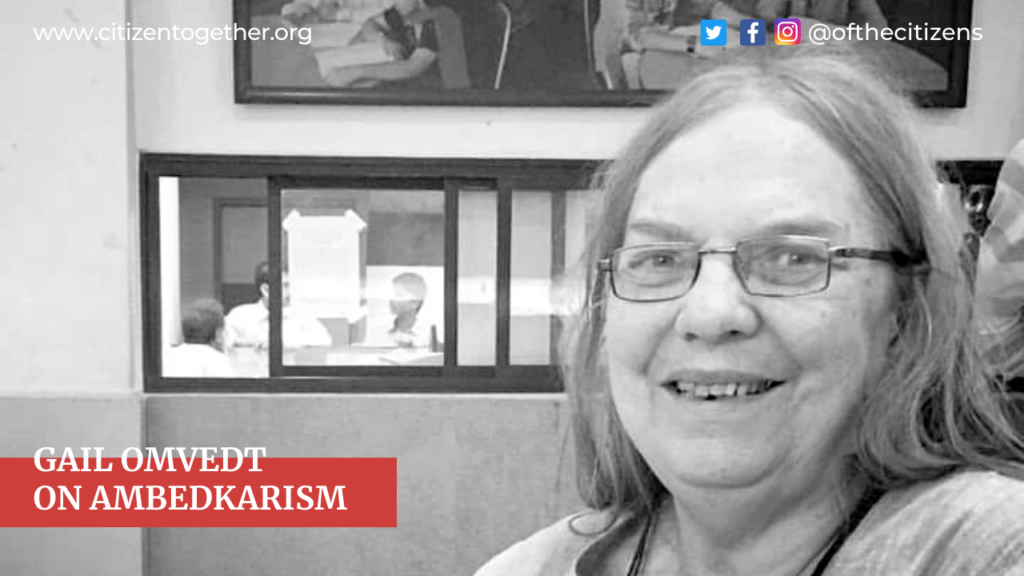Renowned US-born researcher, writer on Ambedkarism and Dalit movement Dr Gail Omvedt passed away following a brief illness at Kasegaon, in Sangli, Maharashtra, early on and Wednesday, August 25. Said an aide. She was 81 and is survived by her husband Dr Bharat Patankar, a daughter Prachi, son-in-law Tejaswi and grand-daughter Nia, who have settled in the US.
Omvedt was a scholar who authored books on Dalit politics, women’s struggle and anti-caste movement. She also participated in various people’s movements in the country, including the one for the rights of people displaced by to Koyna Dam.
Here is a Bunch of Thoughts of Gail Omvedt on Ambedkarism she wrote in Ambedkar: Towards an Enlightened India
This was a different experience from that of the nationalist elite. Gandhi may have travelled third class on trains out of conviction, but Ambedkar did so out of necessity. Nehru and his companions may have been able to give up their government jobs or connections with government institutions such as courts because they had the assurance that wealthy, often landlord families could continue to support the rest of their relatives.
Ambedkar’s presidential speech elaborated on these themes. He argued forcefully that the multiplicity of castes, races, religions and languages could not come in the way of India’s readiness for independence. His eloquent and scathing indictment of imperialism attacked Britain for the impoverishment of India and for doing nothing to lighten either the burden of untouchability or the exploitation of peasants and workers. Finally, his reference to ‘capitalists’ and ‘landlords’ and his characterization of the Congress leaders as ‘feudalists’ indicate the growing influence of socio-economic radicalism on his thinking.
Attacking the supposedly ‘moral’ critique of the love of money and worldly goods, he argued that ‘at a time when the whole world was living in “pain economy” … and when the productivity of human labour was extremely low … it is but natural that moralists should have preached the gospel of poverty and renunciation of worldly pleasures only because they were not to be had.



